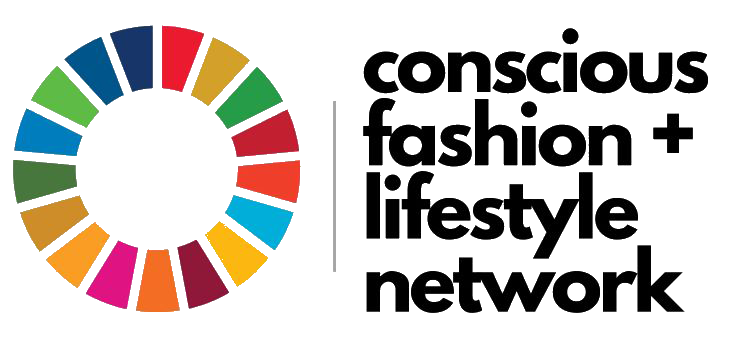Success Story – Chihiro of the Animal Rights Center Japan
Chihiro Okada is the director of the NGO Animal Rights Center Japan (ARCJ), a trailblazing organisation for animal advocacy with unmatched influence in the country.
At ACTAsia, we have the pleasure of working closely with Chihiro and the ARCJ through our Compassionate Choices Network. We recently had the chance to catch up with Chihiro where we learned more about her life, her extraordinary activism for animals in Japan, and her affiliation to ACTAsia.
In the decades since Chihiro became the face of the ARCJ, they have made astonishing strides in mobilising against animal cruelty and factory farming. Since launching their Fur Free for Life project in 2006 against the import of fur garments, they have reduced fur consumption in Japan by a spectacular 98%.
A life dedicated to animal justice
Born in Shizuoka Prefecture, Chihiro has been concerned for the wellbeing of animals for as long as she can remember. She recalls her first exposure to the issue of fur farming at four or five years old upon reading a picture book. She always knew she wanted to work in the charity sector promoting peace. However, it was as a young student in Japan that she came to understand her calling as an animal rights activist. As a member of her school newspaper club, Chihiro worked on an article about pets, leading her to a local administrative agency responsible for the culling of local dogs and cats. There, she learned that 700 000 dogs and cats were killed yearly in Japan.

‘I was shocked at this number and how little-known it was in Japan,’ Chihiro recalls. Since her early learning about the severity of injustices toward domestic animals, she immediately knew she wanted to join the animal rights movement and advance it in her country.
‘I cannot forgive anything that is unfair, I cannot overlook injustices of any sort. And animals are the weakest living things in our society.’
Chihiro has been with the ARCJ for over 20 years.As a university student, Chihiro found herself preoccupied with the disturbing realities of animal testing. Committed to the cause and determined to address its problems, she sought out ARCJ founder and director Susumu Kawaguchi and joined his team. One of three other members, – including Mr. Kawaguchi, a clerical staff and a caregiver for rescued cats and dogs – Chihiro immediately assumed a massive amount of responsibility. Less than two years later, in the face of the unexpected death of her animal-rights mentor Mr. Kawaguchi, young Chihiro assumed the role of ARCJ director.
When asked about her role at the ARCJ, she laughs. ‘Everything.’
As the only Japanese organisation who is undertaking the exploitative farm animal industry, Chihiro tells us she and her seven teammates (4 full-time staff and 3 part-time staff) are tasked with the huge duties of education, enlightenment, lobbying and negotiating. It is incredibly challenging, she tells us. ‘I get through it with optimism and positivity.’
‘We have to be flexible in how we communicate our message across different groups. We have to approach every sector.’
Chihiro first met Pei around 2015 in China at ACTAsia’s annual International Fur Free and Sustainable Fashion Festival, part of our Fur-Free Life project. The ARCJ is an important member of ACTAsia’s Compassionate Choices Network (CCN), a community of non-profit organisations and social enterprises in Asia. The CCN collaborates on social change and works to reduce consumer demand for products and services that cause harm to our planet.
Raising global awareness and building momentum through the CCN
The CCN addresses four key areas: :
- Food (plant-based diet)
- Clothing (sustainable and fur free fashion)
- Home/Living (eco-friendly and cruelty free products)
- Travel (energy saving and low carbon emission)
With the CCN, we promote solutions in Asia, for Asia, by building a movement of compassionate consumers in the region. Last year, ACTAsia’s CCN organised our first-ever Plant Forward, an event aimed at increasing peoples’ understanding of plant-based eating and explaining why plants are a vital part of a sustainable future. This free, Asian-focused event took place online over the course of two weeks with contributors spanning across six countries. The ARCJ did a wonderful job in helping to organise some of our fascinating livestreams (available to watch here).
‘We have a lot of good organisations and activism for the protection of animals in Asia that Western countries don’t know about,’ says Chihiro. She explains that, despite the conception that the prevalence of plant-based diets is more developed in the West, there is increasingly more plant-based consumption in Asia. ‘The consumption of meat in Asia is lower than that of Western countries.’

‘The CCN and Plant Forward are really good events to raise awareness of the good animal welfare activities happening in Asia. They show that there are Asian solutions to Asian problems.’
Looking to promote sustainable consumption patterns, ACTAsia continuously seeks to expand the CCN with members from plant-based food suppliers, sustainable fashion houses, renewable energy and transport sectors, and educational settings in Asia. Collaboration and mutual support puts meaningful, long-term change within closer reach. With the CCN, we are growing a support system by sharing ACTAsia’s vision for a compassionate future.
‘With the Asian network of ACTAsia’s CCN, I expect that the [animal, social and environmental] activities taking place in Asia will continue to grow in power and influence,’ says Chihiro, ‘It is getting bigger every year. Asian animal rights activities are much more well-known.’
Looking to the future
Though Chihiro is proud of her achievements, her aspirations for humane justice are boundless. Living in the Japanese countryside with seven rescue chickens (6 laying hens from battery cages and one rooster), she devotes all of her energy to the ambitious objectives of the ARCJ. These objectives include targeting zero fur consumption in Japan by 2030, a 50% increase in plant-based diets by 2040, 50% reduction in the number of farm animals by 2040, and a full stop to factory farming by 2040.

‘I am also always watching ACTAsia’s education,’ she notes, ‘I want to implement the Caring for Life programme in Japan in the future and educate school teachers.’ As a member of the CCN, Chihiro is looking forward to continuing to expand the ARCJ and its animal rights vision. ‘Awareness of animal cruelty has improved,’ she says, ‘common attitudes toward fur have changed. Let’s keep going.’
![ACTAsia [logo]](https://www.actasia.org/wp-content/themes/ACTAsia-2022-theme/assets/img/actasia-en-colour.svg)



